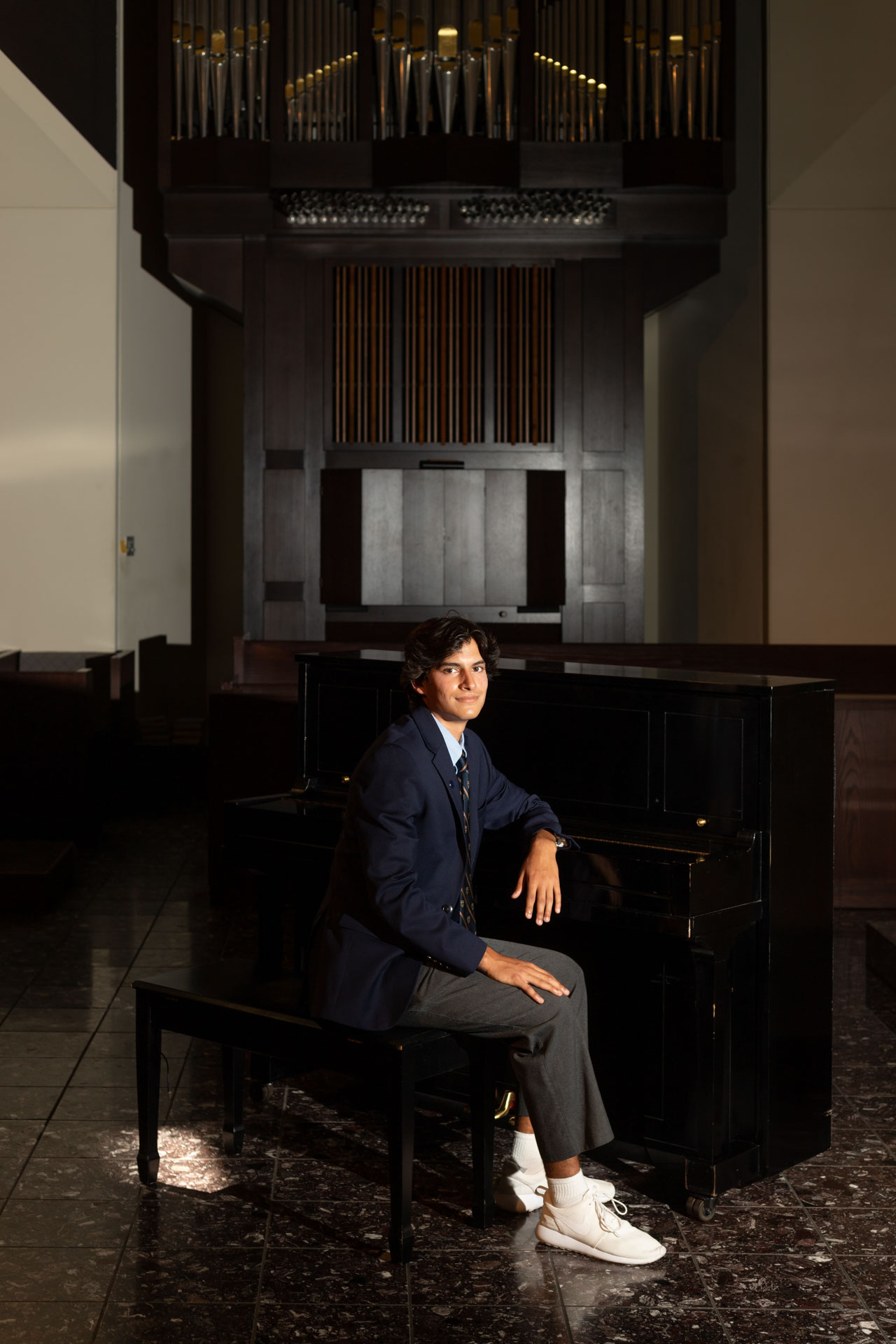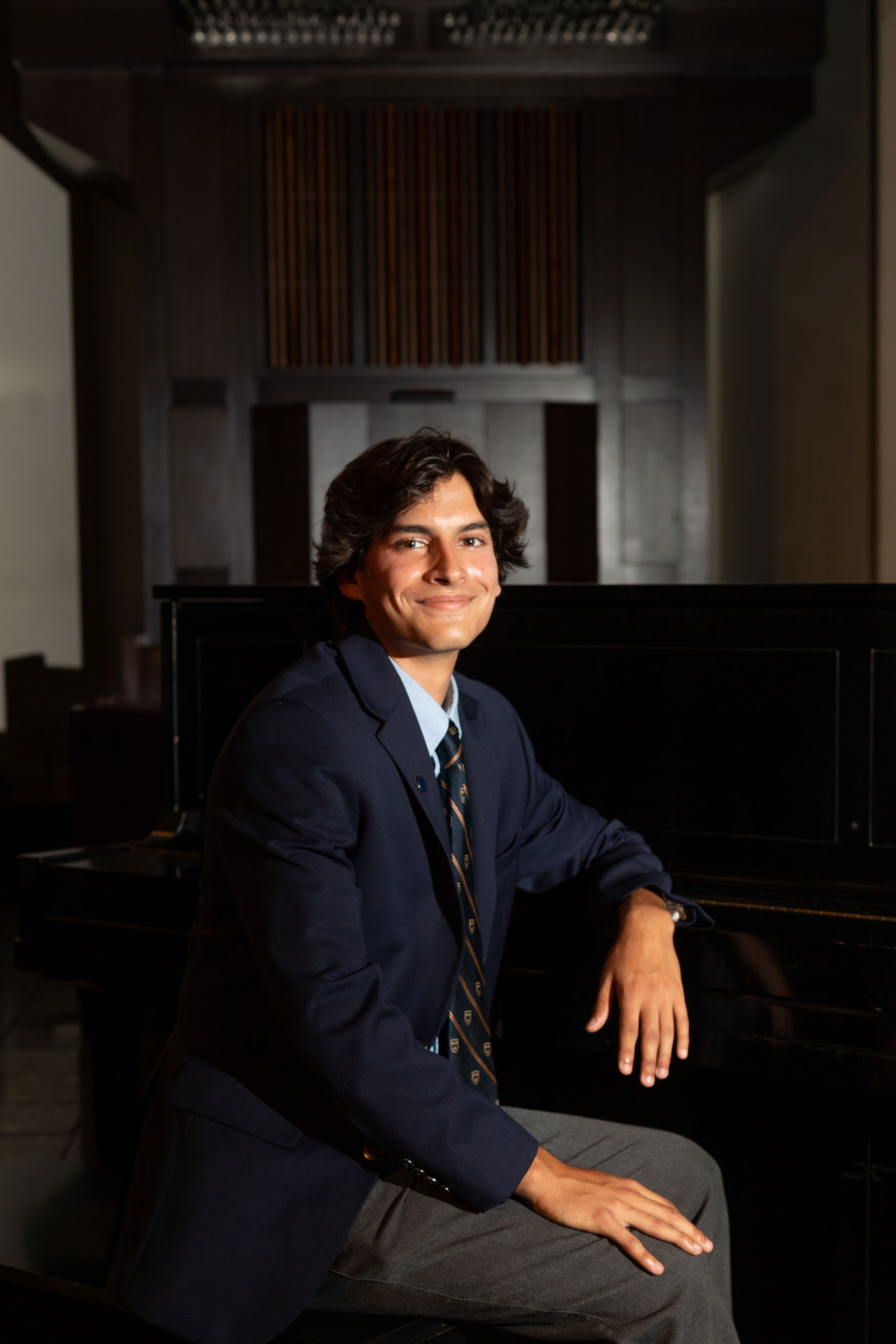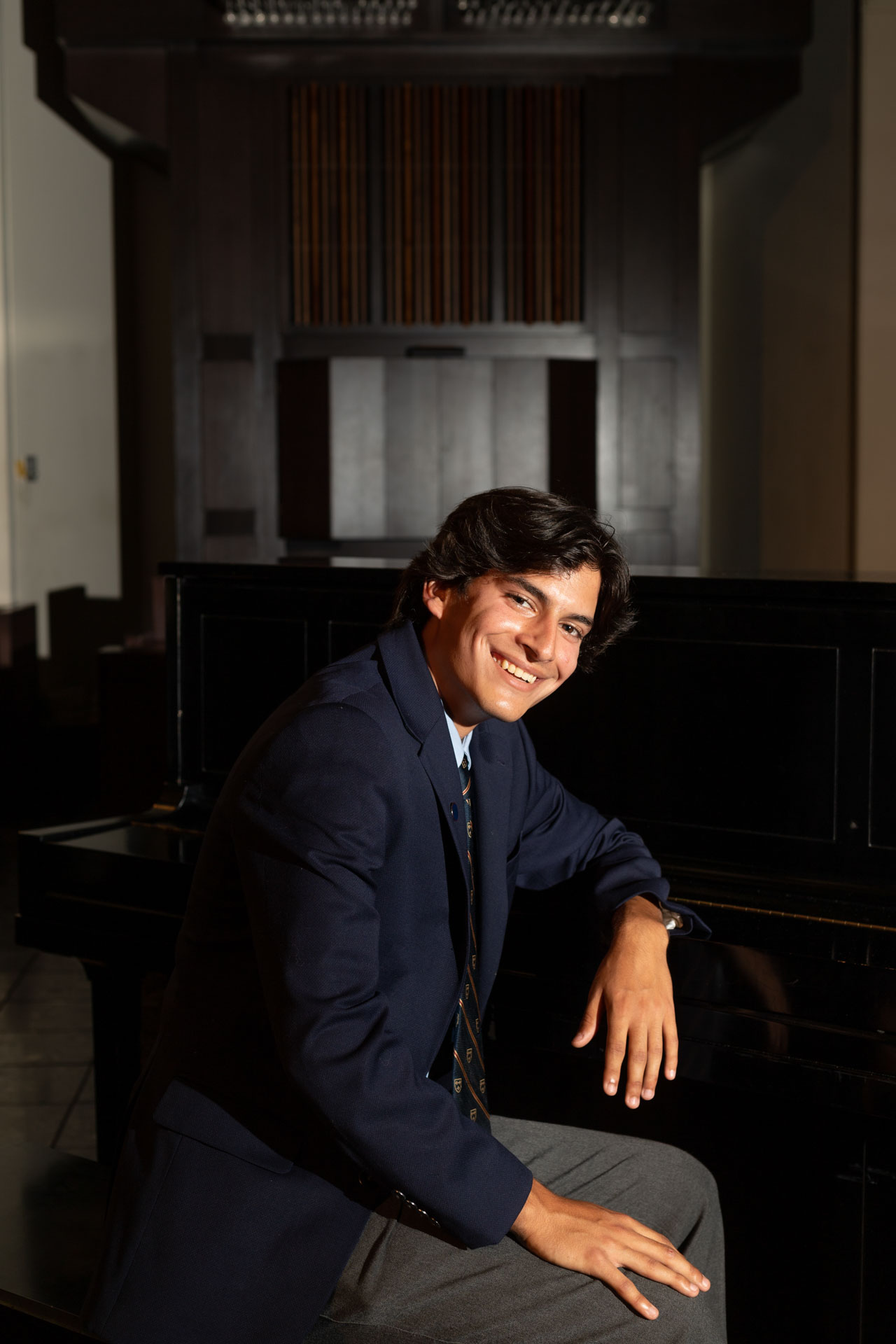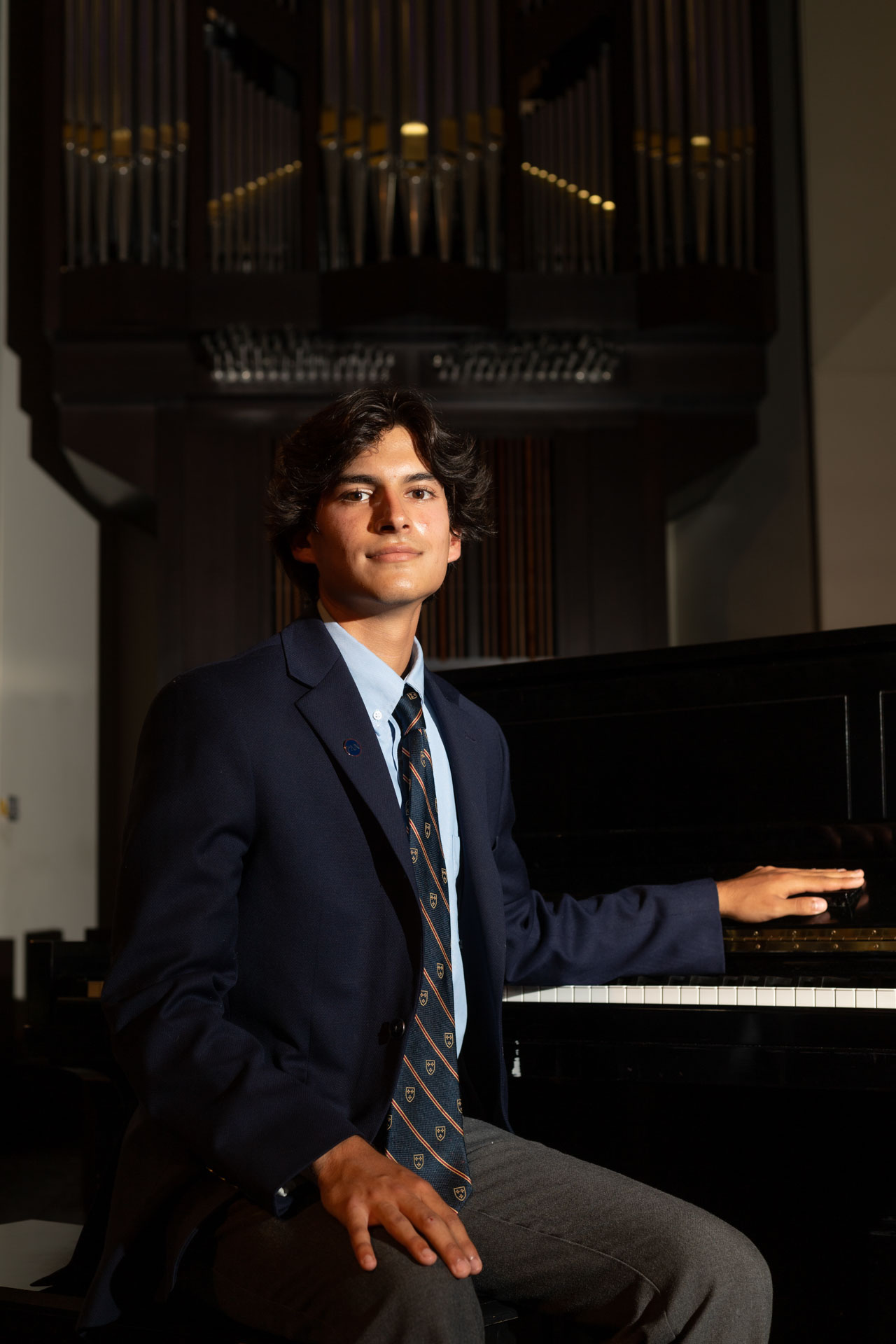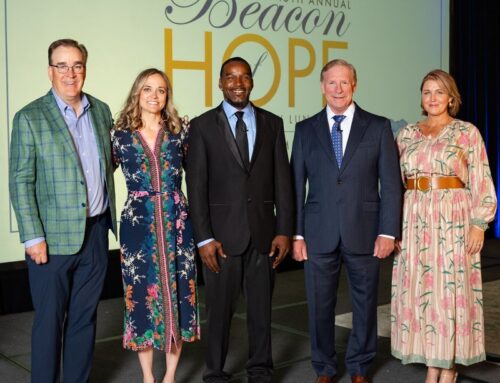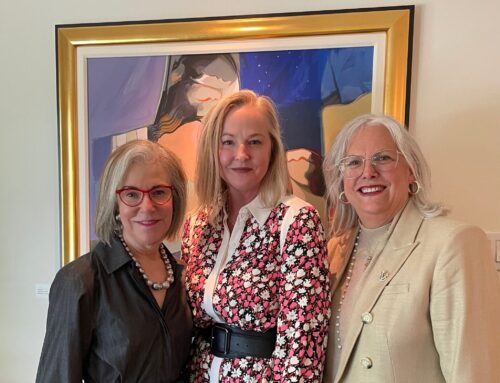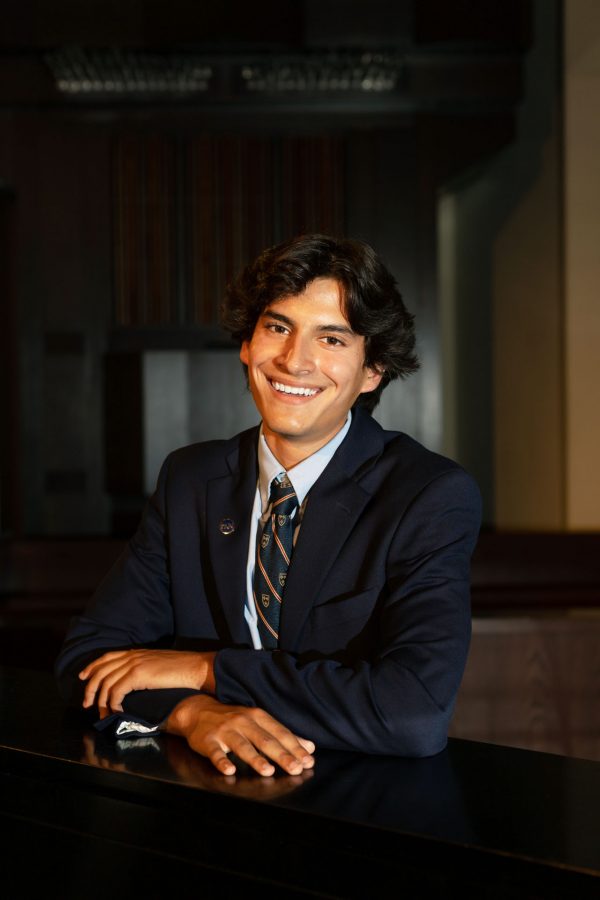
Photography by Jessica Turner.
DANI NISBET started taking piano lessons with his fraternal twin brother, Miki, in second grade. Like many young people, Dani initially thought of it as a chore. But at some point, his attitude toward music changed. Practicing his craft became a respite for him, something to look forward to in the day. After years of practice, he began creating his own melodies, and by sixth grade, he had written his first song, “Happiness.”
“That’s when it started,” Nisbet says. “I realized, wow, I love composing music.”
While Miki traded his music practice for sports, Dani continued to pursue it. Now a senior at the Episcopal School of Dallas, he still studies with his original teacher and has written about six compositions since “Happiness.” Many of them, such as “Remembrance” and “Yearning,” are named to reflect emotional experiences. After some performances, Nisbet says some listeners have thanked him for making their day with a beautiful song. He realized his pieces made tangible the intangible concepts all people experience.
“There’s so much power and emotion and connectivity in the music,” Nisbet says. “And when I’m writing it, it’s me sharing that with other people. And sometimes I feel like I can’t communicate to someone how I’m feeling or something that’s happening, but I can do that through my music. And people can feel that, too.”
Nisbet is inspired by music from around the world. When he listens to different styles — from India, China, Japan and Latin America — he notices what makes each unique and ponders how to blend them together. His most recent work, “Los Sueños de Andalucía,” has elements of Spanish and Arabic melodies. It is aptly named after Al-Andalus, the region of the Iberian peninsula where the two cultures met.
The creative process, which he documented in Musicalia, a short film he made, is sometimes tricky for him. He hears melodies in his head, but they are fleeting. If he isn’t able to get to a piano to play the tune, he loses it. Playing enables him to remember it. Nisbet sets aside time to experiment on the piano, when he listens to the notes he plays and judges what he does and doesn’t like.
“It’s not a perfect process. Sometimes things come naturally. I hear something and I play it and it’s perfect,” he says. “And other times, it’s absolutely not what I wanted to do.”
Now, he’s working on a piece influenced by the Persian/Iranian musical style, which features trills and tremolos. Nisbet appreciates not only its defining elements but also its foreignness to many Americans. Music, as a common interest, is a great connector, he says.
“I’m learning more about music as I’m writing some of my own stuff,” he says. “And I’m seeing, what do other people do? What inspires them? What do they like?”
Nisbet plans to continue creating music in college, but he wants to focus his studies on linguistics, hoping to become a diplomat or ambassador one day. He’s already fluent in English and Spanish, has a firm grasp on Arabic and is learning French and Persian.
“It feels like a superpower when you can talk to someone in another language,” he says. “I think it’s really cool, but that’s also music. Music is a language like that, and it all connects people.”


